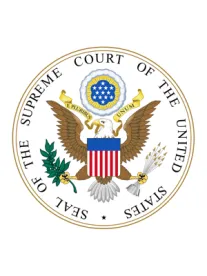At long last, the U.S. Supreme Court heard oral argument yesterday in United States v. Salman. Salman is the first insider trading case the Supreme Court has taken in about 20 years and the most important one since Dirks in 1983. In the last two years, a split has developed in the circuit courts with regard to how to define insider trading – a task made more difficult because Congress has never defined what insider trading is, let alone expressly criminalized it.
The Supreme Court said in Dirks that, to have insider trading, the corporate insider must breach his or her fiduciary duty, which often means that the insider sought to, and did, receive a benefit in exchange for sharing inside information. The question before the Court in Salman is, what counts as a “personal benefit to the insider”? Some courts have said, and the Government argued in its brief, that most any benefit, even an ephemeral one like the happiness you might get when you give someone a gift, is enough of a benefit. If the test is too stringent, the Government argued, people could trade on insider information with almost impunity. That would damage the integrity of our financial markets and potentially create an extremely uneven playing field in the stock market. It would also diminish the utility of a tool that prosecutors, particularly in New York, had been using to noteworthy effect in recent years.
However, the Second Circuit in Newman last year said (and Salman argued in his briefs), that to prove insider trading, the Government must prove there was “an exchange that is objective, consequential, and represents at least a potential gain of a pecuniary or similarly valuable nature.” In this case, the corporate insider disclosed inside information to his brother apparently just to make him happy and not in return for any concrete personal benefit; that brother then passed the information along to his brother-in-law, Salman, who actually traded on the information. As Salman argued, if the benefit can be almost anything, there is a substantial risk that behavior Congress never intended to prohibit is off-limits, too much discretion is vested in the hands of prosecutors (and the SEC), overcriminalization is likely, and the routine flow in information among market participants is curtailed.
While it can be dangerous to read too much into the Justices’ questions (or silence in Justice Thomas’s case), at oral argument, the Supreme Court seemed noticeably more receptive to the Government’s argument than Salman’s. The Justices seemed reluctant to adopt Salman’s argument that the Court should take the approach it has taken in some earlier criminal cases, most recently last term in McDonnell and previously Skilling and McNally— and narrowly interpret criminal statutes (particularly since here there is no statute defining and criminalizing insider trading). Specifically, Salman’s counsel argued that insider trading should be limited to situations where the insider has abused confidential corporate information for personal profit or “pecuniary gain.” A majority of the Justices (even assuming a full Court), including Justices Breyer, Sotomayor, Ginsburg, Kennedy and Kagan, seemed to believe that benefiting family members at least with a gift of valuable information sufficiently conferred a personal benefit on the tipper that it should be criminalized. The tipper benefitted even if, as Justice Ginsburg hypothesized, the tipper was simply no longer being “pestered” for information by his family member which, as Salman’s counsel said, means that “virtually anything” constitutes a personal benefit. This line of questioning, coupled with the fact that Newman – which set this case in motion — goes against the weight of appellate court authority on this issue could suggest that the easier path for the Court is to affirm the conviction in Salman and interpret insider trading broadly. Particularly without Justice Scalia, who may have advocated that Congress must clearly define insider trading if it intends to criminalize it (an argument he made in Skilling), Salman appears to have an uphill battle here.
The Government did not get off scot-free, however. Several Justices did express concern that a rule that equated “personal benefit” with almost anything would leave prosecutors and the SEC with too much discretion and not provide clear-cut rules to market participants. Justices Alito and Sotomayor in particular pushed back when the Government suggested an even looser standard that essentially eliminated the personal benefit requirement whenever the tipper disclosed information for a non-corporate purpose. Justice Breyer also underscored the importance of drawing clear lines for market participants and regulators to follow.
Whichever way the Court rules, questions about the interpretation of insider trading (like what must a remote tippee know about the benefit the insider received) are likely to remain, so courts will continue to struggle with this issue even after a decision in Salman. As the Court has said before, and may echo here, the ultimate responsibility for clarifying what constitutes insider trading lies with Congress. If Congress (or the loser here) does not like the Court’s ultimate decision in Salman, it’s up to Congress to fix it.




 />i
/>i

